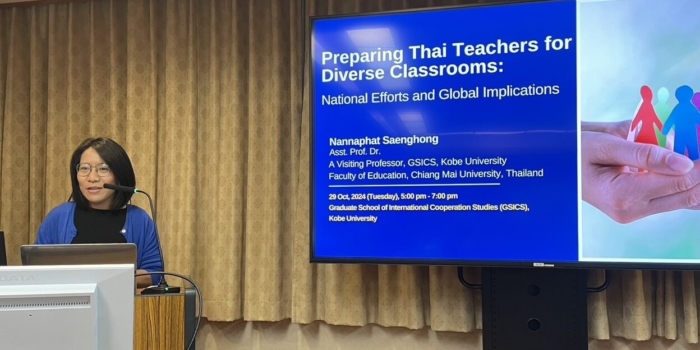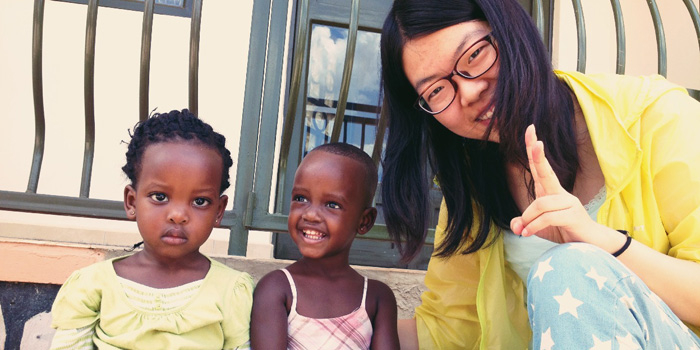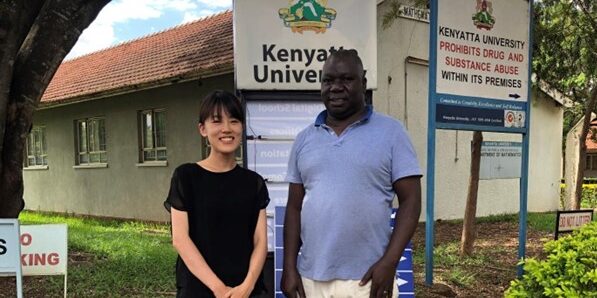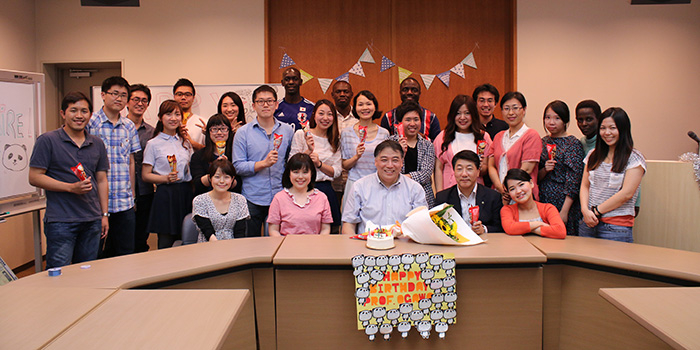On October 29th (Tuesday), we invited Dr Nannaphat Saenghong, an Assistant Professor at Chiang Mai University and Visiting Professor at Kobe University, to deliver a lecture titled “Preparing Thai Teachers for Diverse Classrooms: National Efforts and Global Implications.” The lecture covered teacher education in Thailand with a focus on fostering multicultural coexistence and was organized into four parts: (1) the background of teacher education in Thailand, (2) ethnic diversity in Thai public education, (3) teacher education for multicultural classrooms, and (4) multiculturalism and the Sustainable Development Goals (SDGs).
Professor Saenghong began by outlining the foundational aspects of Thailand’s teacher education system, including the structure of teacher training curricula, relevant education policies, and higher education institutions for teacher training. She also highlighted current challenges within teacher education. Addressing Thailand’s culturally diverse context with over 62 ethnic groups, she discussed how public education should be managed and how teachers should be trained to operate classes in such a diverse culture. Notably, she pointed out the difficulties Thai teachers face with language barriers and issues of cultural sensitivity issues. Professor Saenghong emphasized that fostering inclusive education for children from various backgrounds requires embracing multiculturalism and implementing multicultural education. She stressed the role of teacher education in enhancing multicultural understanding among teachers and providing practical training for handling diversity in the classroom. She also provided an overview of Thailand’s policy evolution towards multicultural coexistence, explaining how the 2017 constitutional reform marked a positive shift, with the Thai government formally committing to the realization of a multicultural society.
Despite these advances, challenges remain, including the complexities of developing teacher education curricula that incorporate multicultural education and the limited legislative language supporting multicultural coexistence. In the final section of her lecture, Professor Saenghong examined the relationship between teacher education for multicultural coexistence and the SDGs, focusing on Goal 4 (Quality Education), Goal 5 (Gender Equality), and Goal 10 (Reduced Inequalities). Here, she reinforced the critical role of teacher education in advancing a multicultural society, essential for an inclusive world where “No one will be left behind.” The lecture provided valuable insights into the role of teacher education in addressing development challenges across the world. Afterward, a Q&A session allowed students to interact directly with Professor Saenghong, who thoughtfully responded to each question.

Finally, I would like to extend my sincere gratitude to Professor Keiichi Ogawa for organizing this invaluable seminar and to Professor Nannaphat Saenghong for her enlightening and inspiring lecture.
Authored by Takumi Koike (Master’s Student)
Related







